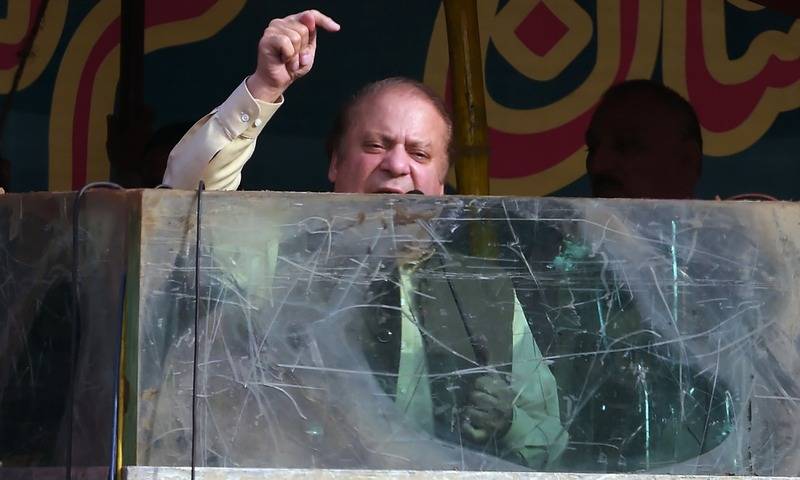Days ago, an elite force vehicle in Nawaz Sharif's homecoming rally crushed a child to death while passing through Lala Musa, Gujrat. A few hours later, he was proudly declared a "martyr" of their movement by topline leadership of the party; Capt(r) Safdar going as far as comparing their rally for the ousted premier with the Pakistan Movement. The same people who were almost in tears, spewing patriarchy all over national television over a simple court summon for Maryam Nawaz, were unbattered and unhinged when they declared the child of a common man their martyr, and moved on.
The duality and elitism in the standards of national leadership in this matter is a whole different chapter, but the more imperative question that we need to ask these leaders distributing titles in every other jalsa is: who really are martyrs? And is this martyrdom anything more than a political tool in the third world?
The words may seem more relevant in a militant struggle, a crusade or in any form of warfare, where they are part of the field's culture, with a strict cogency, and definite meaning. The term martyr carries subjectivity, varying in meaning and influence based on region and religion. In Arabic the word is Shahid, in Greek it is Martur, both meaning "witness". In a sense, martyrs become witnesses of the justification or validity of their causes by sacrificing their lives for it. Their death not only provides the cause with greater legitimacy but also significant emotional importance and sympathy. But when these words are borrowed to the field of politics and statecraft, they become far more flexible and employable because "legitimacy" and "emotional relevance" are two things any seasoned politician values.
The same happens after every terrorist attack or every unfortunate accident and negligence. The recurrent incidents such as the Bacha Khan University attack after the APS Peshawar attack and the Quetta blast speak volumes of the practicality of the resolve held by the leadership expressed by the former prime minister who keeps reiterating that they are defeating terrorism, ironically, from his bullet proof container. But to all these incidents, responsible leadership carries a simple mathematical solution of adding the new victims to national martyr index and minusing personal responsibility.
In a religious society such as ours, the tag of martyrdom greatly quashes questions of the necessity of the "sacrifice" being (in most cases) pushed on to the victims. It vindicates those who lost their lives, it shuts down most complains from families, and it brings the victims in a way to the side of the government somehow freeing them even from the compulsion of being apologetic, as if the "victims" were deliberately there to present this great "sacrifice". There is no question that one should value to the highest the lives of all fellow humans, but we need to realise political martyrdom is not allotting value, it is demeaning it.
Because we, as Faiz would put it, "We - who lay murdered in the darkest lanes." The common people are not like the actual martyrs of the ruling class, we are not people whose number plates to BMW's are replaced for "security reasons", we do not have bullet proof barricades when we stand in jalsas, our so called martyrdom does not make memorials and does not swing elections, we are merely numbers and not even names, numbers that are added to political martyr list, that help minus personal responsibility. We need to impress upon our leadership and ourselves that the arbitrary use of martyrdom must stop, instead of rendering "honour", the responsible should accept responsibility and be at the very least apologetic.
Till then, let's smile and look forward to our martyrdom!






